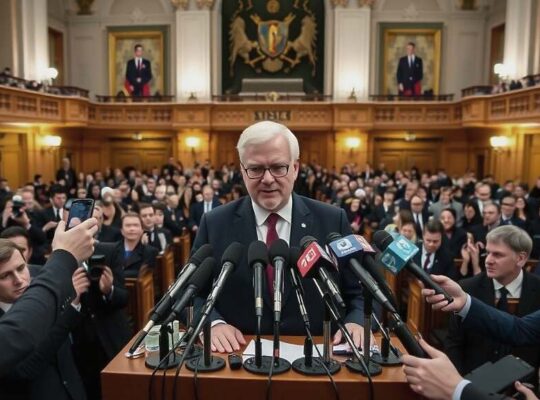The German government convened an emergency meeting Wednesday evening, bringing together industry representatives to address the escalating crisis surrounding Nexperia, a semiconductor manufacturer and the potential for significant production disruptions. According to sources cited by “Handelsblatt”, the meeting, chaired by State Secretary Frank Wetzel, culminated in an agreement focused on mitigating the economic fallout from the increasingly complex geopolitical situation.
At the heart of the crisis lies a confluence of factors. China recently imposed temporary export restrictions on certain components used in Nexperia chips, a direct consequence of the ongoing trade dispute with the United States. This action is compounded by the fact that Wingtech, Nexperia’s Chinese parent company, is subject to US sanctions, effectively limiting its ability to operate freely. Further complicating matters, the Dutch government recently asserted control over Nexperia, ostensibly to prevent the transfer of crucial technologies to China.
The meeting participants identified three key objectives. Firstly and considered the most immediately actionable, the German government pledged to actively mediate between China, the Netherlands and the United States, seeking a de-escalation of tensions and a reduction in the detrimental effects on German industry. This effort acknowledges the precarious position German manufacturers find themselves in, caught between the competing geopolitical agendas of major global powers.
Secondly, the focus extended beyond Volkswagen, the automotive giant which has already publicly flagged potential disruption. Attendees underscored the necessity for a broader, industry-wide effort to expedite the substitution of Nexperia chips across all sectors reliant on them. This ambitious goal highlights the inherent vulnerability of German industry’s dependence on a single, politically sensitive supplier.
Finally, a commitment was made to jointly analyze the long-term repercussions of the crisis, pushing for a fundamental re-evaluation of supply chain resilience and strategic autonomy. This is expected to involve accelerating the development of a sovereign chip manufacturing capability within Europe, alongside the creation of significantly larger security buffers within existing corporate supply chains. The incident underscores a concerning lack of diversification and strategic foresight, prompting a potentially profound reshaping of Germany’s industrial policy and its place within the global technological landscape. The extent to which these ambitions can be realized remains to be seen, given the inherent complexity of the underlying geopolitical tensions.












